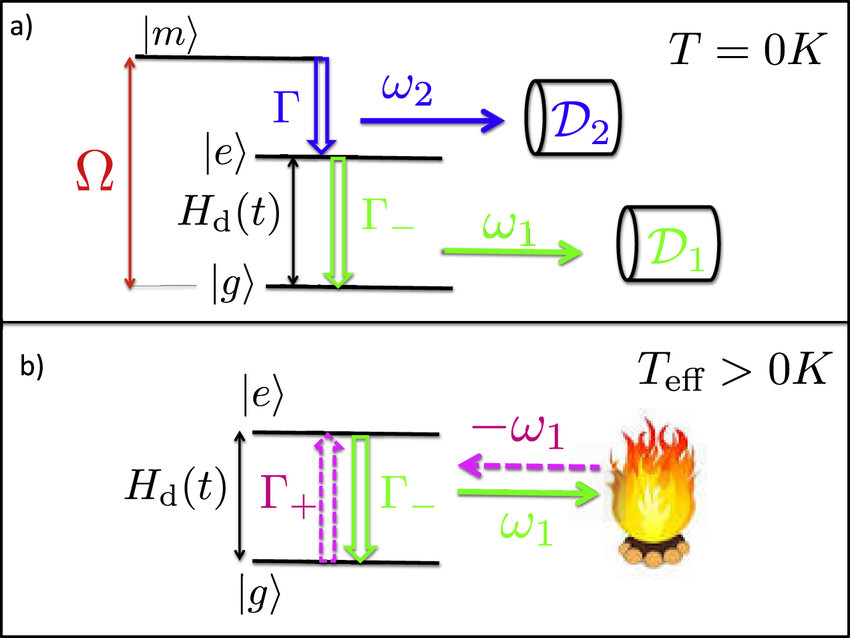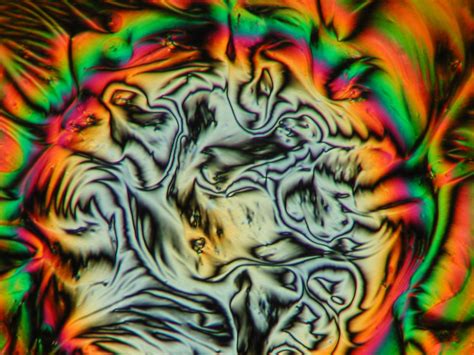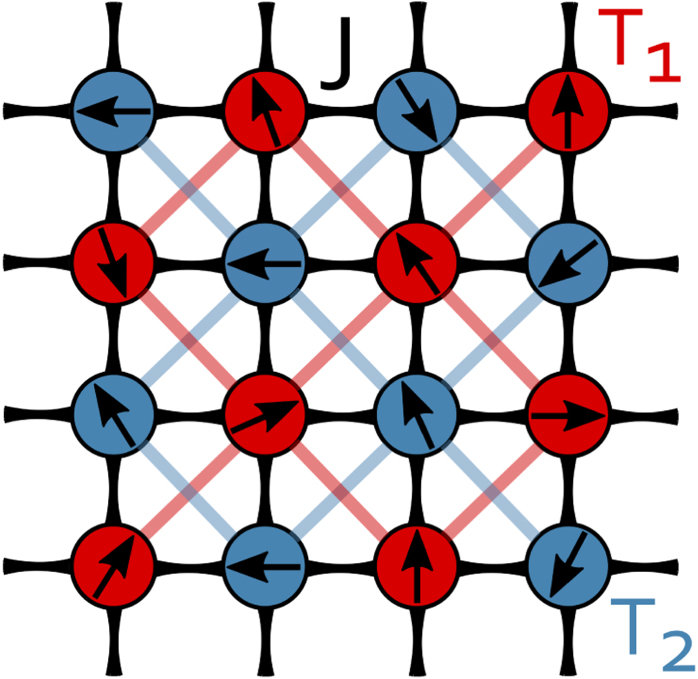Permanent staff: Alain Berard (EM), Bertrand Berche (PU), Christophe Chatelain (MCF HDR), Olivier Collet (MCF), Cyril Élouard (CPJ), Thibaud Etienne (MCF), Alexandre Faribault (MCF), Sebastien Fumeron (MCF HDR), Thierry Gourieux (MCF HDR), Yves Grandati (PU), Malte Henkel (PU), Dragi Karevski (PU), René Messina (PU), Hervé Mohrbach (PU), Martin Müller (MCF)
Non permanent members: Lorena Ballesteros-Ferraz (Postdoc), Raphaël Leone, Yashovardhan Jha (PhD), Andy Manapany (PhD), Leïla Moueddene (PhD),
Our activities are focused on fundamental questions in modern theoretical physics. Typically, we construct and study simple models that allow us to grasp the main features of physical systems, that exist in real life or in the lab.
Our research efforts currently cover the following topics.
RECENT Publications :
Probing many-body correlations using quantum-cascade correlation spectroscopy.
Scarpelli, L., Elouard, C., Johnsson, M., Morassi, M., Lemaitre, A., Carusotto, I., … & Volz, T. (2024). Nature Physics, 1-5.
Complete positivity violation of the reduced dynamics in higher-order quantum adiabatic elimination.
Tokieda, M., Elouard, C., Sarlette, A., & Rouchon, P. (2024).Physical Review A, 109(6), 062206.
Fractional cosmic strings.
S Fumeron, M Henkel, Malte, et A Lopez. Classical and Quantum Gravity, 2023, vol. 41, no 2, p. 025007.
Critical and tricritical singularities from small-scale Monte Carlo simulations: the Blume–Capel model in two dimensions.
Moueddene, L., Fytas, N. G., Holovatch, Y., Kenna, R., & Berche, B. Journal of Statistical Mechanics: Theory and Experiment, 2024(2), 023206.
Effects of atom losses on a one-dimensional lattice gas of hard-core bosons
F Riggio, L Rosso, D Karevski, J Dubail – Physical Review A, 2024 – APS
Extending the laws of thermodynamics for arbitrary autonomous quantum systems.
Elouard, C., & Lombard Latune, C. (2023). PRX Quantum, 4(2), 020309.
Anomalous energy exchanges and Wigner-function negativities in a single-qubit gate.
Maffei, M., Elouard, C., Goes, B. O., Huard, B., Jordan, A. N., & Auffèves, A. (2023). Physical Review A, 107(2), 023710.
Topologically protected quantum dynamo effect in a driven spin-boson model.
Bernhardt, E., Elouard, C., & Le Hur, K. (2023). Physical Review A, 107(2), 022219.
Potts model with invisible states: a review.
Krasnytska, M., Sarkanych, P., Berche, B., Holovatch, Y., & Kenna, R. (2023). The European Physical Journal Special Topics, 232(11), 1681-1691.
On the possibility of classical vacuum polarization and magnetization.
Fumeron, S., Moraes, F., & Berche, B. (2023). Classical and Quantum Gravity, 40(17), 175012.
An Abelian Higgs model for disclinations in nematics.
Santos, A., Moraes, F., Santos, F. A. N., & Fumeron, S. (2023). Condensed Matter Physics, 2023, vol. 26, No. 1, 13506
Spin polarization induced by decoherence in a tunneling one-dimensional Rashba model.
Varela, S., Peralta, M., Mujica, V., Berche, B., & Medina, E. (2023). SciPost Physics Core, 6(2), 044.
Wigner dynamics for quantum gases under inhomogeneous gain and loss processes with dephasing.
Coppola, M., Landi, G. T., & Karevski, D. (2023). Physical Review A, 107(5), 052213.
Scaling of fronts and entanglement spreading during a domain wall melting.
Scopa, S., & Karevski, D. (2023). The European Physical Journal Special Topics, 232(11), 1763-1781.
Numerical evidence of a universal critical behavior of two-dimensional and three-dimensional random quantum clock and Potts models.
Anfray Valentin, and Christophe Chatelain. Physical Review E 108.1 (2023): 014124.
Introduction to topological defects: from liquid crystals to particle physics
S. Fumeron, B. Berche – The European Physical Journal Special Topics (2023) 232(11), 1813-1833.
Dynamical symmetries in the non-equilibrium dynamics of the directed spherical model.
Henkel, M., & Stoimenov, S. (2023). Nuclear Physics B, 997, 116379.
The relevance of curvature-induced quadrupolar interactions in dipolar chain aggregation.
Messina, R., & Kemgang, E. (2023). The Journal of Chemical Physics, 159(17).
RESEARCH TOPICS:
Quantum dynamics
Permanent staff : Dragi Karevski, Cyril Elouard, Malte Henkel, Thibaud Etienne, Alexandre Faribault
Non permanent members: Yashovardhan Jha (PhD), Lorena Ballesteros-Ferraz (Postdoc)
This research activity aims to deepen our understanding of open quantum systems and leverage this knowledge to develop innovative applications in quantum computing and quantum thermodynamics. Many-body and few-body quantum systems are now routinely created and manipulated in setups based on cold atoms, superconducting circuits and nanoelectronic structures.
We investigate the complex interactions within many-body quantum systems by relying on state-of-the-art analytical and numerical techniques, such as numerical implementations of the Bethe Ansatz and form factor calculations, large-scale approaches like hydrodynamics and/or field theory, as well as exact solutions of simple models.
Our goal is to determine the properties of these systems at both low and high temperatures and understanding the dynamics of quantum states, especially those far from equilibrium. These studies help in exploring new quantum phases of matter and phase transitions in such systems. We also explore the thermodynamic behavior of nonequilibrium quantum systems, to gain new insights in complex quantum dynamics and in the foundations of quantum mechanics.
Collaborations are performed with various international research centers, including the Majulab (CNRS, Singapour), the University of Geneva (Geneva, Switzerland),

Soft Matter physics
.Permanent staff : M. Müller, R. Messina, S. Fumeron, B. Berche, O. Collet
Non permanent members: A. Manapany (PhD)
The research team « Dynamics and symmetries » is also engaged in extensive research activities within the field of soft matter physics, that is physical systems sensitive to small perturbations (thermal fluctuations, small external fields or mechanical stresses…). Among them, colloidal suspensions and granular matter have high potential applications and constitute a formidable theoretical challenge due to the intrinsic long range (and possibly anisotropic) interaction there.
Another significant aspect of their research is the study of transport phenomena in nematics. These family of liquid crystals provide a bridge between soft matter physics and biology on the one hand (active matter), but also between soft matter physics and cosmology on the other hand (analogue gravity). In particular, a feature common to all these situations is the presence of topological defects, the curvature-torsion they carry leaving observational signatures onto any propagating field.
Finally, elastic and fluid membranes in and out-of-equilibrium are also subject of active research. Focus is brought to membrane-like objects whose configuration is governed by an interplay of elasticity and geometry . Problems on different scales are discussed such as the macroscopic growth of thin tissues as well as the symmetry-breaking of fluid membranes due to confinement or constriction.
Collaborations are performed with various national and international research centers, including IAP (France), ESPOL (Ecuador) and Universidade Federal Rural de Pernambuco (Brazil).

Criticality and phase transitions
(Permanent staff : C. Chatelain, B. Berche, D Karevski, M. Henkel
Non permanent members: L. Moueddene (PhD)
The research team « Dynamics and symmetries » investigates critical phenomena in lattice spin models undergoing continuous phase transitions. These transitions can be either classical, typically driven by temperature, or quantum. The transition may result from the spontaneous breaking of a symmetry of the Hamiltonian or be of topological nature as in the XY model. The models are studied numerically by means of Monte Carlo simulations, DMRG or tensor network renormalization group calculations, or analytically in the quantum case when they can be reduced to a free fermion gas. Advanced analysis techniques, such as studying the zeros of the partition function, are usually necessary to estimate accurately the critical exponents. In recent years, the team has investigated topics including the influence of the introduction of disorder, the scaling behavior at the upper critical dimension or the dynamical symmetries in non-equilibrium dynamics.
Collaborations are performed with various international research centers, including the Center for Fluids and Complex Systems (Coventry, UK) and the Institute for Condensed Matter Physics (Lviv, Ukraine).

Mathematical physics
Permanent staff : H. Mohrbach, Y. Grandati, T. Gourieux, M. Henkel, S. Fumeron, T. Etienne
Non permanent members: R. Leone
Recently new classes of exactly solvable quantum potentials associated to the recently discovered exceptional orthogonal polynomials (X-OP) have been the subject of active researches. They appear to open new perspectives on some integrable nonlinear ODE and PDE. We study in particular the connection between X-OP and hierarchies of rational and special functions solutions of the Painlevé equations and higher order Painlevé chains.
Another important activity is dedicated to ageing processes. One powerful approach that we are developing is to look for scale invariance, both in space and in time, of concrete microscopic models, that we study analytically and numerically. Those include reaction-diffusion models, or growth models, in particular those that fall in the Kardar-Parisi-Zhang universality class (both in one dimension and higher dimensions).
We also use the tools of fractional calculus to explore convection-diffusion processes in biological media and to develop models for oncology, where the connection between the fractal dimension of a tumoral tissue and the stage of cancer evolution has recently been demonstrated for different body organs (breast, pancreas, prostate…).
In recent years, we have also focused on Noether’s theorem from a classical perspective for pedagogical purposes, aiming to enhance its application in a more elegant and powerful manner. Certain aspects of Noether’s theorem in relation to adiabatic quantities, which are associated with ‘quasi-symmetries,’ are also examined
Collaborations :
National
Institut d’Astrophysique de Paris (Sorbonne Université)
LEM3, Université de Lorraine
Institut d’Optique, Université Paris-Saclay, Palaiseau
Centre Européen de Sciences Quantiques, Université de Strasbourg
Laboratoire de Physique Théorique et Modèles Statistiques, Université Paris-Saclay
International
Center for Fluids and Complex Systems, Coventry U, UK
Institute for Condensed Matter Physics, Academy of Sciences, Lviv Ukraine
Universidad San Francisco de Quito, Quito, Ecuador
ESPOL, Guayaquil, Ecuador
Università del Salento, Italy
Universidade Federal Rural de Pernambuco, Recife, Brazil
Seoul National University, South Korea
University of Rochester, USA.
Forschungszentrum Jülich, Germany
SISSA, Trieste, Italy
Universidade de Lisboa, Portugal
Universite de Sarrebruck, Germany
Virginia Tech, USA
King’s College London, London, UK
Penn State University, USA
